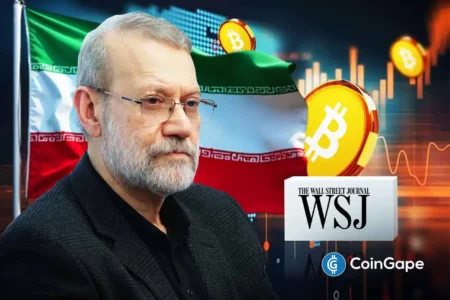Pakistan’s Path to Cryptocurrency Regulation: Key Developments and Future Outlook
Pakistan is poised to make significant strides towards cryptocurrency regulation, driven by the establishment of the Pakistan Crypto Council (PCC) and the formulation of a new framework for digital assets. While cryptocurrencies remain illegal in the country as of now, the PCC aims to create a secure, transparent crypto ecosystem that could benefit both investors and the broader economy. This ambitious move follows a recent initiative to establish a Strategic Bitcoin Reserve, marking a crucial turning point in how digital currencies could be integrated into Pakistan’s financial landscape.
Evolution of Crypto Regulation in Pakistan
The PCC convened a high-level meeting in Islamabad to discuss the formulation of a comprehensive regulatory framework for cryptocurrencies. Key stakeholders, including Finance and Revenue Minister Senator Muhammad Aurangzeb, the State Bank of Pakistan (SBP) Governor, and the Securities and Exchange Commission of Pakistan (SECP) Chairperson, participated in the deliberations. The primary focus was to craft a robust framework that ensures innovation while prioritizing security, transparency, and investor protection. Importantly, the newly formed Pakistan Digital Assets Authority (PDAA) aims to regulate and oversee digital asset activities.
During this meeting, participants explored the potential establishment of an autonomous regulatory authority that would oversee the digital finance landscape and the cryptocurrency ecosystem. A technical committee has been proposed, comprising representatives from the SBP, SECP, and other relevant government ministries, tasked with reviewing draft laws and establishing a governance structure for the regulatory framework. This multi-agency collaboration is pivotal in creating a well-coordinated approach to crypto regulation.
Promoting Blockchain Growth and Investor Protection
One of the primary goals of the Pakistani government is to foster blockchain technology’s growth while ensuring investor protection and promoting financial inclusion. The regulatory framework under development is designed to accommodate a wide range of digital assets while also safeguarding the interests of individual investors. This is particularly important in the face of rising global interest in cryptocurrencies, as more individuals in Pakistan look to explore the crypto space.
The government’s focus on regulatory clarity is expected to significantly uplift the public’s confidence in cryptocurrency investments. A well-structured regulatory environment will not only encourage larger investments but also facilitate the entry of institutional investors into the market. This, in turn, can contribute to enhancing the overall financial landscape of Pakistan.
Strategic Bitcoin Reserve: A Game Changer?
During a recent Bitcoin Conference, PCC Head Bilal Bin Saqib introduced Pakistan’s potential plan to establish a Strategic Bitcoin Reserve. This innovative initiative is expected to diversify the country’s financial portfolio and enhance its economic stability. However, the implementation plan will likely undergo thorough scrutiny from the International Monetary Fund (IMF), which may introduce certain complexities.
Establishing clear regulations for cryptocurrencies will be instrumental in realizing the Bitcoin reserve initiative. Regulatory clarity will not only protect investors but will also enhance the long-term sustainability of this plan. Moreover, clearly defined regulations can help address the IMF’s concerns, paving the way for collaborative efforts in this venture.
Tackling Challenges and Enhancing Compliance
While the trajectory for cryptocurrency regulation appears promising, challenges remain. The regulatory framework must effectively mitigate risks associated with money laundering, fraudulent activities, and market volatility. As part of this, the PCC and relevant government agencies need to focus on continuous monitoring and robust compliance mechanisms within the crypto ecosystem.
The involvement of diverse stakeholders, including law enforcement agencies and compliance experts, will be crucial to ensure that the regulatory measures are not only effective but also easily implementable. Addressing fundamental concerns will enhance investor confidence and promote a healthier economic environment for both existing and future crypto enthusiasts.
Future Outlook for Pakistan’s Crypto Landscape
The steps being taken by Pakistan towards cryptocurrency regulation indicate a thoughtful approach to a rapidly evolving digital economy. As the government works on establishing a coherent framework, it is also necessary to engage in public dialogues with crypto enthusiasts, investors, and industry experts. This will provide valuable insights into the public sentiment and potential hurdles to widespread adoption.
Moreover, education and awareness campaigns targeting the general public will be vital. These initiatives can help demystify cryptocurrencies and inform citizens about the associated risks and benefits. Enhanced public understanding will not only attract more participants into the crypto space but also facilitate a smoother regulatory transition.
Conclusion
In summary, Pakistan’s journey toward cryptocurrency regulation is gathering momentum, underscored by the efforts of the Pakistan Crypto Council and initiatives like the Strategic Bitcoin Reserve. By focusing on investor protection, compliance, and financial inclusion, the country is setting the stage for a sustainable and innovative crypto ecosystem. As regulators and relevant authorities continue to collaborate, it remains essential to remain vigilant and adaptive to the evolving nature of digital assets. The future of cryptocurrency in Pakistan may not only transform the financial landscape but also redefine how the nation engages with technology and financial innovation.















